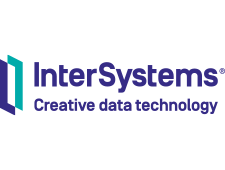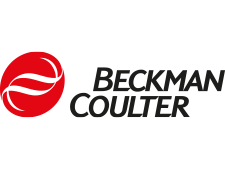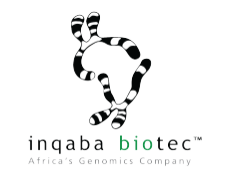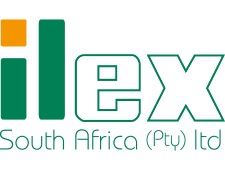NATIONAL HEALTH LABORATORY SERVICE: Underpinning SA’s Healthcare Through Toughest Times
The NHLS has been at the forefront of the battle against Covid-19, providing countrywide testing solutions while maintaining its first-class national pathology service. This is a business achieving its vision and serving the country with excellence and sustainability. CEO Karmani Chetty tells Enterprise Africa more about the development of this exciting healthcare heavyweight.
South Africa’s National Health Laboratory Service (NHLS) is the central provider of health laboratory services, education and research. Its mission is to ‘provide pathology and laboratory services through competent professionals and state-of-the-art technology, supported by evidence-based research, training, and innovation to enhance integrated service delivery to meet the needs of the population’. Its national network of laboratories provides medical testing capabilities which allow doctors to provide the best possible treatment for those in need.
Already serving 80% of the population, the NHLS utilises its subsidiaries to provide a range of vital services that protect and better the lives of South Africans. The National Institute for Communicable Diseases (NICD), National Institute for Occupational Health (NIOH), Forensic Chemistry Laboratories (FCL) and the South African Vaccine Producers (SAVP) all fall under the NHLS umbrella.
At the start of 2020, provision of medical testing was thrust into the spotlight as the Covid-19 pandemic ripped through the world. In South Africa, tough measures put in place to curb the spread of the virus, and the NHLS was asked to step up like never before.
“It was certainly challenging in many ways, it also showed how strong we are as an organisation – even in the toughest of times,” CEO Karmani Chetty tells Enterprise Africa.
COVID-19 CHALLENGE
Traditionally, the NHLS core service surrounded pathology. In South Africa, where illnesses including cancer, HIV and AIDS, diabetes, TB, asthma, and others remain underdiagnosed and undertreated, the healthcare environment is already challenged. But the onset of Covid-19 saw the goalposts moved with the NHLS tasked with the continuation of industry-leading pathology and related services while developing a country-wide testing strategy at the same time as advising government on many associated issues including local vaccine development and deployment policy. For every business and every individual, it was a time fraught with trials and uncertainties. The NHLS endured and assisted the country in its movement through the pandemic without faltering.
“We had challenges in getting test kits due to a global shortage of polymerase chain reaction (PCR) and extraction kits, logistical issues (such as interruptions with production), flights cancellations, customs delays, and closure of services during public holidays,” details Chetty, a seasoned business leader and medical doctor with expertise across many other spheres.
“These and other challenges led to testing backlogs in the laboratories and increased turnaround time of results. This was compounded by the unavailability of staff due to Covid-19 infections and Covid-19 lockdown and social distancing regulations.”
Always working hard to ensure testing and delivery of results was as efficient as possible, the NHLS diversified its PCR and extraction platforms, implementing a testing strategy which prioritised those with a medical need and for clinical diagnosis, for example, suspected symptomatic Covid-19 cases and clinical diagnosis for patients with respiratory diseases at health care services.
The company also decentralised testing to district laboratories and mobile laboratories by using GeneXpert instruments when the test kits became available. The GeneXpert system requires minimal human input and less infrastructure or equipment, making for a more efficient process.
“The organisation had 128 Covid-19 testing laboratories, including the mobile laboratories, by the end of the 2020/21 financial year. Despite these challenges, we were still able to conduct over four million Covid-19 tests by the end of the financial year with an average turnaround time of 48 hours,” says Chetty.
The CEO is understandably proud of the role the company has played in the ongoing battle against Covid-19 and its success of continuing to deliver primary services throughout. The NHLS runs two hotlines for doctors and the public as well as an emergency operating centre and this have been maintained throughout a challenging period.
“The pandemic has forced the adoption of new ways of working,” admits Chetty. “Like many other organisations in South Africa and around the world, we have risen to the occasion by expeditiously put measures in place to safeguard our employees and instituted a new way of working as per our business continuity plan. We put many our employees on rotation, especially those working in areas where adhering to social distancing protocols would have been impossible. We also made sure that those working from home have all the right tools of the trade – most importantly, connectivity. As such, we have embraced agility and adaptability to ensure that we remain at the forefront of delivering quality testing for Covid-19 in the fight against the spread of the pandemic in South Africa.”
Across the country, the NHLS and its subsidiaries employ more than 8000 dedicated people in all nine provinces, described by Chetty as “very committed, working long hours”. Not a simple off the shelf product, the offering from the NHLS has been carefully developed over a long period of time and is continuously monitored and adapted to suit the needs of the time. By growing from two to 128 Covid testing labs and generating R1.9 billion between 1 April 2020 and 31 March 2021, the business remained structurally and financially solid.
HISTORIC IMPORTANCE
Established in 2001, the NHLS is overseen by the Department of Health and is a leader on the continent in terms of the research and training delivered.
“Our activities comprise diagnostic laboratory services, research, teaching and training, and production of sera for anti-snake and other venom, reagents and media,” confirms Chetty.
“The NHLS is unique in that it is the only state diagnostic laboratory. It is also the largest diagnostic pathology service in South Africa, with a network of approximately 233 pathology laboratories and providing different tests in all pathology disciplines. We are in formal partnership with South Africa’s universities, and our staff teach and provide practical training for every single medical, allied health professional and medical technology student, every trainee-specialist in pathology, as well as many scientists.”
Meeting the needs of the population by providing healthcare and protection, the NHLS subsidiary – the SAVP – produces antivenoms for the treatment of bites from eleven of the most medically important snakes prevalent in southern and other parts of Africa, as well as for spider bites and scorpion stings. In South Africa, button spiders, baboon spiders, violin spiders, sac spiders and more have the ability to cause serious harm. Venomous snakes kill around 30,000 people every year in sub-Saharan Africa (recorded deaths) with the bush viper, water cobra, African mambas and others particularly lethal. The SAVP is the country’s sole producer of effective and researched antivenom and provides quality products for use when they are sorely needed.
“We also have an in-house diagnostic media manufacturing arm, Diagnostic Media Products (DMP), which manufactures and supply a wide range of high-quality diagnostic reagents, ready to use kits, and microbiological culture media,” says Chetty of the group’s portfolio. “DMP’s products range from routine microbiological media to more specialised media for dedicated laboratories such as food microbiological media and environmental testing media to a wide range of stains used in microbiology and manufacture viral transport media and phosphate-buffered saline used in hospital laboratories and at private clinical laboratories for the collection and transport of samples for molecular RT-PCR SARS-CoV-2 assays.”
In addition, further signifying the importance and impact of the business, Chetty highlights 67 mobile units deployed in high population density areas, rural areas, and informal settlements to enable testing for Covid-19 for those members of the public who do not have access or means to visit local clinics and/or designated testing sites. The mobile units have also been utilised at border posts for testing.
Clearly, the range of services and the positive effect of the portfolio is a true asset to South Africa and the wider African community.
MODERNISING
In 2013, the NHLS picked up a Business Initiative Directions (BID) International Stars Award for quality. This was after, in 2012, two NHLS researchers played a major role in research that took us closer to a HIV vaccine. And in 2008, the company launched TrakCare – a standardised laboratory information system – from InterSystems to provide efficiency across its technology systems.
Without doubt, the NHLS is forward thinking and regularly displays its ambitions around pushing the cutting edge while continually breaking boundaries. Whether this is through new systems in partnership with industry leaders like InterSystems, or internally across the entire human resource, the NHLS is actively modernising.
“Technology is advancing at a rapid pace and we need to be able to speedily respond to such changes through how we structure and deliver our services. As such, we are making a major investment in our IT infrastructure to enable higher quality healthcare in support of patients – through new and improved system deployments, which incorporate numerous applications across different interfaces,” explains Chetty.
Henry Adams, Country Sales Manager at InterSystems adds: “It is a Laboratory Information System (LIS). In the public space, 85% of test requests are still handled manually. Today, there are around 130,000 test requests per day. Each test request has on average 4.5 individual tests. Still, most of these are captured manually. Our system takes all the test requests and processes the requests by sending requests to an analyser and then returning the results. We control the analysers and we verify the results, and depending on the nature of the test, we create a detailed pathology report. We print around 500,000 pathology reports each day but we also make all results available digitally for viewing by up to 15,000 people at any time. The result is a direct impact on quality of care that a doctor gives to a patient.”
This expansion on the TrakCare system will be welcomed by the NHLS team who themselves have been the target of a modernisation and development programme. Especially under the spotlight right now is gender equality within the business – the same as all state-owned enterprises. The NHLS has a good history after its Professor Valerie Mizrahi was voted Women of the Year in Health, Science and Technology in 2006 at the Checkers/SABC 2 Awards.
“We are committed to fostering an inclusive environment where everyone can succeed. The links between gender diversity and organisational success are well documented and we have many talented women at NHLS who are experts and leaders in their fields,” says Chetty.
“As such, the representation of women occupying top management positions at NHLS stands at 57%, while 61% accounts for women in senior management.”
In total, female representation in the business stands at 68.2% with majority percentages holding professional qualifications, and skilled and semi-skilled labour positions. According to Chetty, progress towards gender parity remains a top priority and current stats show a trend in the right direction as an organisation.
“The NHLS is committed to ensuring that the organisation recognises and supports talent at all levels – from support functions to technical staff. The very nature of our diverse organisation means that colleagues develop at different times and require varying types of support and training throughout their careers,” she says.
Chetty, who boasts more than two decades in senior management and lists human resource planning as a key skill, is clear that for those coming through the ranks continuous improvement is vital.
“My advice to the younger generation, especially those in the NHLS, is that they must not limit themselves based on their technical expertise,” she asserts. “I want them to understand that learning something new is an investment in themselves, and adaptability is an asset that can help both individuals and organisations flourish. This is the reason we have a very efficient Workplace Skills Plan set out to promote and prioritise skills development in the organisation. We are doing this to capacitate and empower our workforce, especially the younger generation.”
FUTURE PROGNOSIS
While the Covid-19 pandemic and the consequent fear of serious illness or death among the population remains, for many, life does begin to return to normal with offices and factories welcoming staff back after the 21/22 festive period. But testing for positive cases will continue and for most in healthcare the expectation is that this will form a long-term part of strategy to live with the virus. The NHLS will assist government in planning for the future while continuing to roll out its pathology services in the arenas of TB, HIV and others. It is a time where the business must adapt and grow, and Chetty is confident.
“In the next five years, the NHLS will, inter alia, focus on providing a clinically accepted diagnostic pathology service, high-quality patient-centred pathology service at the right time and the right place, deliver value in pathology services through improved cost-effectiveness, and leverage innovation and new technology to improve efficiency.
“We will also invest in information, digital technology, communication links and logistical services to improve efficiency.”
With another ongoing planning challenge – the onset of National Health Insurance (NHI) – constant reviews and strategy adjustments must be made. It’s no easy task.
“The NHLS is a national asset and is well-positioned for NHI,” Chetty enthuses. “It is a single, national organisation, that provides pathology services to every public sector clinic and hospital across the country. It is against this backdrop that the organisation strives to provide high-quality pathology and laboratory services that are clinically efficient and cost-effective.”
Of course, the CEO is also working towards strengthening and maintaining the NHLS financial standing, and improving operational efficiencies, accreditation of laboratories, while making enhancements to IT infrastructure.
For most, with a dramatic shift in focus, and the need to adapt from one day to the next, the NHLS has continued to provide service of the highest order during the most difficult conditions witnessed through its history. The company has proven its value to the nation and continues to show its significance as a SOE.




